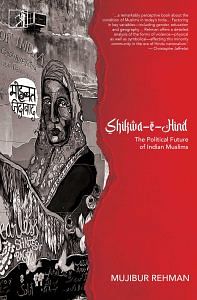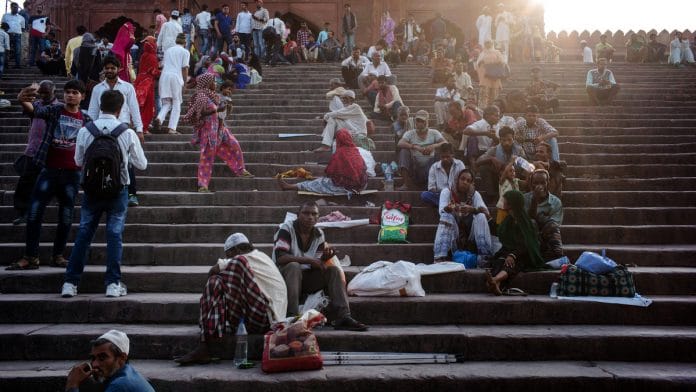Indian Muslims are currently living under pervasive fear in an India that is increasingly embracing Hindu majoritarian politics. Finding themselves as targets of lynching, bulldozer justice, frequent riots for trivial or often for no reason, and subject to random violence in this new majoritarian state, they have started asking if they have any rights at all as citizens in India.
The Indian state’s decision to approve the pardon of 11 perpetrators against gang rape victim Bilkis Bano during the 2002 Gujarat riots on 15 August 2022 and facilitate their release is one of the prominent examples that shows that the arc of justice has stopped bending towards fairness for Indian Muslims. India’s Supreme Court overturned this decision of the government on 8 January 2024, but the intent of the government is what is central to our analysis. Despite public outcry, that the Indian state remained firm on its decision for close to a year and a half speaks volumes of its intent. In this broad scenario, Muslim citizens are experiencing substantial erosion of rights and their ‘Right to Have Rights’ is constantly challenged.
The phrase ‘Right to Have Rights’ was formulated by German philosopher Hanna Arendt—a phrase of tremendous theoretical and intellectual potential—which needs to be unpacked in order to make sense of what is unfolding in India today. In Origins of Totalitarianism, Arendt wrote, ‘We become aware of the existence of a right to have rights (and that means to live in a framework where one is judged by one’s actions and opinions) and a right to belong to some kind of organized community, only when millions of people emerge who had lost and could not regain these rights because of the new global situation.’
Syela Benhabib analyzes further the phrase, Right to have Rights. It is apparent that the word ‘right’ is deployed twice in this phrase. So, Benhabib asks, ‘Is the concept of “right” being used equivalently in two halves of the phrase?’ The first use, she says, ‘is addressed to humanity as such and enjoins us to recognize membership in some human group.’ She further explains that what is involved here ‘is a moral claim to a membership and certain form of treatment compatible with the claim of membership.’ The second use of ‘right’ is in its juridico-civil usage and could be described as ‘civil and political’ rights or as citizens’ rights.
In this particular usage, according to Benhabib, there is a ‘triangular relationship between the person who is entitled to rights, others upon whom this obligation creates a duty, and the protection of this rights claim and through its enforcement through some established legal organ, most commonly the state and its apparatus.’ This second use of ‘right’ is pursued on the prior claim of membership. Therefore, she explains, ‘To have a right, when one is already a member of an organized political and legal community, means that I have a claim to do or not to do A, and you have no obligation not to hinder me from doing or not doing A.’ This second category of rights, according to her, ‘entitles persons to engage or not in a course of action, and such entitlements create reciprocal obligations. Rights and obligations are corresponded: rights discourse takes place among the consociates of a community.’
Since Indian Muslims are seen as a religious minority, they enjoy minority rights, which is how a whole set of rights were created and embraced in the Indian Constitution based on debates in the Constituent Assembly. Given that majoritarian Hindutva polity does not recognize minority rights, it has systematically attacked the rights of Indian Muslims as part of vote bank politics for decades.
What is crucial to note is that there is no place for minority rights as such in the overall discourse of rights by Hindutva polity, which deems minority rights as divisive and thus antithetical to majoritarian polity. Additionally, Hindutva polity views Indian Muslims as a historical entity with an established record of oppression against Hindu society. That is why it is necessary to understand the complex relationship between Indian Muslims and Hindutva polity or Hindu majoritarianism. And how its growth has contributed to the changing fortunes of Indian Muslims and is redefining the basic character of Indian democracy.
Separation of Powers: Not Working
In India’s liberal democracy, the conventional logic that the separation of powers between executive, legislature, and judiciary would protect the rights of average citizens (in this case Indian Muslims) is becoming increasingly non-functional. This is what is giving Indian democracy a body blow, not just to minority rights or the Muslim future. Even distinguished members of the Indian judiciary have started throwing up their arms about the efficacy of India’s liberal polity—especially its ability to deliver justice. This non-functionality of separation of powers is the most crucial reason why Hindu majoritarianism has become the only game in town. Often recognized in the form of decay of institutions, it has deeper roots and predates the arrival of the BJP in national politics.
In a rather benign way, Atul Kohli presented empirical evidence for what he described as a ‘growing crisis of governability’ in the late 1980s. We need to take a pause before we put all the blame on the Hindu Right political forces to make sense of how and what led to such a dangerous turn. If you look at the emergency of 1975-1977 as an aberration and turn a blind eye to the phenomena of the ‘decay’ of institutions prior to and after the emergency—we may not go very far in making sense of why Indian voters continue to support Hindu majoritarianism.
 This excerpt from Shikwa-e-Hind: The Political Future of Indian Muslims by Mujibur Rehman has been published with permission from Simon & Schuster India.
This excerpt from Shikwa-e-Hind: The Political Future of Indian Muslims by Mujibur Rehman has been published with permission from Simon & Schuster India.







Fact that a Muslim author thought it right to write a book like this exposes the arrogance and ingratitude of those Muslims who stayed back after 1947. Most of these people who stayed back voted with Jinnah for partition of india. Suddenly they got cold feet and stayed. There started the misery for Hindus. With Nehru Gandhi combo going all out to please the honored guests who overstayed Hindu hospitality, Hindus have paid a very heavy price for their folly. How much we have done to keep these foreigners happy ( they are Pakistanis who didn’t take the last train) . Hindus have said enuf is enuf. 2024 is not the last election for Hindus. We will bounce back. We will remove all acts done by congress to hurt Hindus. We will ensure Hindus live with dignity in india and not be apologetic. Muslims must learn to integrate. They cannot create 100 little Pakistan’s in Indian soil. The dharma Yudh is on. Jai Shri ram??